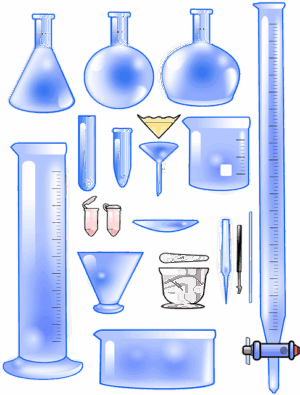Overcoming language barriers in scientific documentation is vital for global collaboration. Standardizing Laboratory Reports and Scientific Data enables accessibility, knowledge exchange, and reproducibility. Professional translation services bridge cultural gaps, ensuring accurate conveyance of complex information while maintaining data integrity. Implementing standardized practices and leveraging technology facilitates confident submission of high-quality reports and data globally.
In today’s global scientific landscape, submitting laboratory reports and scientific data in any language is becoming increasingly common. Overcoming language barriers is crucial for effective communication and collaboration among researchers worldwide. Standardizing global scientific documentation ensures clarity and accessibility. Translation services play a vital role in facilitating research across languages while maintaining data integrity. This article explores these key aspects, providing insights into how to navigate the complexities of multilingual scientific reporting.
- Overcoming Language Barriers in Scientific Documentation
- Standardizing Global Scientific Communication
- The Role of Translation Services in Research
- Ensuring Data Integrity Across Languages
Overcoming Language Barriers in Scientific Documentation
Overcoming language barriers in scientific documentation is a significant challenge, especially when sharing insights across global communities. In an era where collaboration transcends geographical boundaries, submitting laboratory reports and scientific data in multiple languages becomes essential for fostering inclusivity and knowledge exchange. This practice ensures that findings are accessible to researchers worldwide, regardless of their linguistic background.
To facilitate this process, various tools and platforms have emerged, offering translation services and language-neutral formats. These technologies enable scientists to convey complex information accurately while maintaining the integrity of their research. Additionally, peer review processes can incorporate language expertise, ensuring that translations are both precise and culturally sensitive, thereby promoting a more diverse and robust scientific discourse.
Standardizing Global Scientific Communication
In today’s global scientific landscape, where collaborations transcend geographical boundaries, standardizing communication becomes paramount for effective knowledge exchange. Standardization facilitates the seamless submission and understanding of laboratory reports and scientific data, regardless of the language or origin. This is crucial in ensuring that researchers worldwide can interpret and build upon each other’s work without linguistic barriers.
International organizations play a pivotal role in establishing guidelines and adopting universal formats for laboratory reports and scientific data. By promoting consistency in terminology, formatting, and content structure, these standards enable scientists to communicate complex ideas concisely and accurately. This, in turn, fosters collaboration, reproducibility of experiments, and the advancement of scientific knowledge on a global scale.
The Role of Translation Services in Research
In today’s global research landscape, where collaborations transcend geographical boundaries, the seamless exchange of information is paramount. This is particularly true for laboratory reports and scientific data, which often need to be shared and understood across diverse linguistic contexts. Here, translation services play a pivotal role. Professional translators are not merely word-for-word interpreters; they act as cultural mediators, ensuring that technical jargon and nuanced concepts are accurately conveyed from one language to another.
This is especially crucial when dealing with complex scientific terminology and methodologies. Accurate translations enable researchers from different linguistic backgrounds to access critical data, replicate experiments, and build upon existing knowledge without language barriers. Moreover, translation services facilitate international partnerships, fostering collaboration that can drive innovation and discovery in various fields of study.
Ensuring Data Integrity Across Languages
Maintaining data integrity is a critical aspect, especially when submitting laboratory reports and scientific data internationally. With research becoming increasingly globalized, scientists must ensure their findings are accurately represented and accessible across diverse linguistic landscapes. One key challenge lies in translating technical information while preserving its precision and validity.
To overcome this, standardized translation practices should be adopted. This includes employing professional translators with expertise in scientific terminology to avoid misinterpretation or loss of meaning. Additionally, using language-specific tools for data validation can help catch any discrepancies. By combining human expertise with technological aids, researchers can confidently submit their work, ensuring that laboratory reports and scientific data maintain their integrity and value regardless of the language in which they are presented.
In today’s global scientific landscape, submitting laboratory reports and scientific data in any language is essential for fostering international collaboration. Overcoming language barriers through standardization and translation services ensures clear communication, maintains data integrity, and promotes diverse research contributions. By adopting inclusive practices, scientists can break down geographical and linguistic constraints, accelerating knowledge exchange and revolutionizing the way we conduct and share research worldwide.
